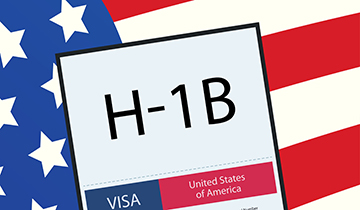
By: Jioselin Juarez Contreras
Senators Chuck Grassley (R-IA) and Dick Durbin (D-IL) have introduced the H-1B and L-1 Visa Reform Act of 2025, a bill that seeks to reform and close loopholes in the H-1B and L-1 visa programs. The bill aims to tighten oversight, reduce abuse, protect both U.S. and foreign workers, and enhance transparency in the foreign worker recruitment process.
H-1B Proposals in the Reform Act
L-1 Proposals in the Reform Act
Employers would also need to provide fair working conditions that do not harm U.S. workers in similar roles. Under current law, there is no wage requirements for the L-1 category.
Elimination of B-1 in Lieu of H-1B
The bill would close the loophole that currently allows some individuals to use a B-1 visa instead of an H-1B for certain work assignments in the U.S. All work that would qualify as H-1B employment would require an actual H-1B visa, rather than allowing temporary use of the B-1 category.
H-1B and L-1 Enforcement
For any questions or assistance, please contact your trusted Chugh, LLP immigration professional.

© 2026 Chugh LLP Affiliate Network. All Rights Reserved